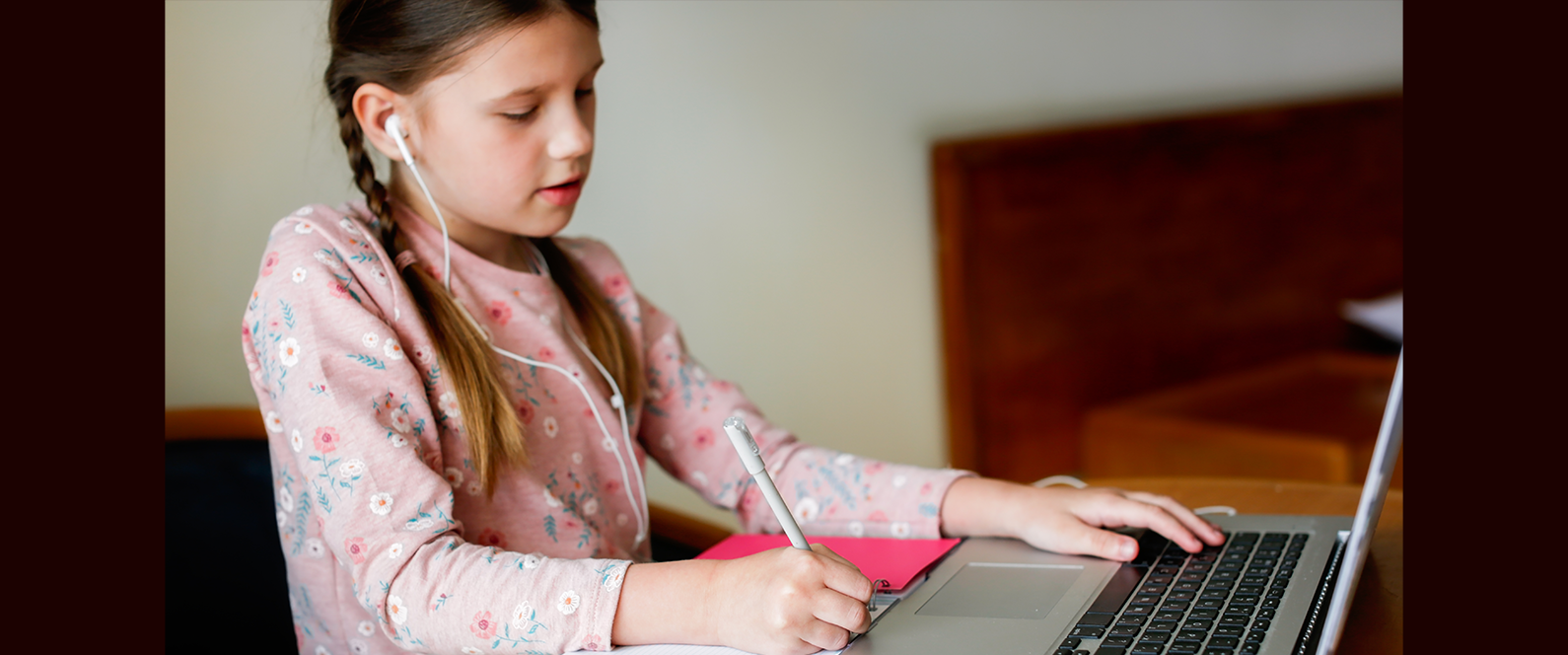Children's Health During COVID-19
 Adopt strategies to help inculcate healthy habits among children during the COVID-19 pandemic
Adopt strategies to help inculcate healthy habits among children during the COVID-19 pandemic
Maintaining optimum children’s health and wellbeing is an ongoing challenge during the COVID-19 pandemic. Children are being required to spend more time at home, as schools alternate between in-person schooling and virtual learning. Most sport and extracurricular activities have been cancelled, restricting play and activities outside the home. Children are eating more shelf-stable, ultra-processed, high-caloric foods along with an increase in sedentary behavior and screen time. According to the American Academy of Pediatrics, excessive screen time, sedentary behavior and an unhealthy dietary patterns increases children’s risk for weight gain and poor health.
We must maximize efforts to encourage children to eat healthy and engage in physical activity regularly. This will help to improve their mood and concentration, maintain energy levels and prevent illness. A nutritious diet is important for growth and development and also support the immune system to help fight off infections.
Outlined below are a few strategies to help inculcate healthy habits among children during the COVID-19 pandemic
- Establishing and maintaining a daily routine. During the pandemic children are feeling helpless and stressed. Disorganized and irregular daily routines cause unnecessary anxiety in children. Establish wake-up and bed-time routines. Children find it hard to sleep when they are stressed. Keeping to pre-pandemic nighttime routines such as brushing teeth, having a shower, and reading a book before bed would be helpful.
- Regular meal and snack time structure. This helps avoid all-day grazing, as children spend more time at home with readily accessible food.
- Plan and cook simple meals. Meals should be cooked with fresh vegetables, fruits, lean proteins, dairy, and whole grains. Swap in dried or canned alternatives when fresh produce is not readily available. Look at the healthy eating resources for meal ideas.
- Healthy snacking. Children need to eat a snack or two in between meals. Encourage children to choose healthier options like cheese, yogurt, chopped fruits, nuts, or boiled eggs rather than sweets or salty snacks. Healthy snacks boost nutrition and maintain energy levels.
- Treats. Children should also be allowed treats. They need to be taught not to feel ashamed or guilty of eating any food and that it is okay to eat sweets and desserts occasionally. Mix unhealthy treats with healthy alternatives whenever possible.

- Involve children in planning meals. Engaging children to identify recipes and prepare meals will help to boost their confidence and interest in food. Checkout for simple family recipes for cooking inspirations.
- Culture and food. Eating habits reflect the values of the family and influences the food choices we make. Find and cook recipes that help connect to your culture. Explain to them the history behind the recipe or the tradition, which will help build a sense of belonging.
- Eat together as a family, at least once daily. This is a good way to communicate and catch up with children amidst a busy work schedule.
- Technology use. Limit use of technology like mobile phones, tablets and television while having meals together. This helps the children to focus on eating and avoids unnecessary distractions.
- Take-away or pre-prepared meals. It is sometimes easier to order take-away or have pre-prepared meals after a busy day. When doing so, consider ordering healthier options like grilled foods instead of deep-fried or battered foods; avoid sauces and salad-dressings which are oily or sugar-sweetened. Also consider ordering smaller portions to avoid over-eating.
- Try a new hobby. Children are spending a lot more time with screens than usual as part of schooling. It is therefore important to plan activities that are fun, like board games or arts and crafts, to occupy them after their virtual school hours. Reading is another good hobby to pursue.

- Movement. Physical activity is also important for the mental and physical well-being of children. Planning a walk outside the home together as a family or doing some exercise as a family can help everyone to stay fit and healthy. Check out these fun exercise links for ideas.
Eating healthy and engaging in physical activity can help children cope with stress and stay healthy during these difficult times. Parents should lead their children by being role-models of healthy behaviors.
Sources: KidsHealth | United Nations Children’s Fund (UNICEF) | Alberta Health Services
Contributors: Ms. Anupama Jithesh, Dr. Sohaila Cheema, Dr. Karima Chaabna and Dr. Amit Abraham
Editing: Mr. John Hayward